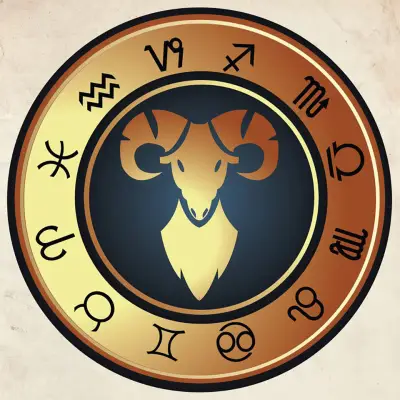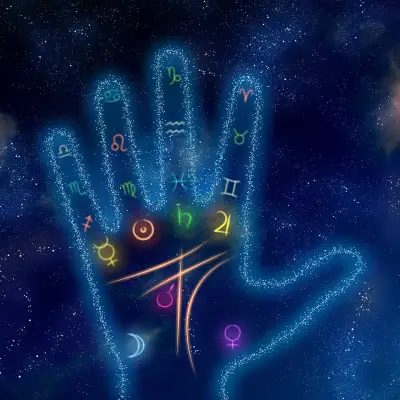Ares, the god of war, stands out as a particularly complex character. Often associated with the darker aspects of warfare, such as chaos, violence, and bloodlust, Ares's reputation in mythology is somewhat notorious.
But who is Ares, really? And is his reputation as an 'evil god' entirely fair? Let's delve into the myths, legends, and powers of Ares to uncover the truth behind this fascinating deity.
Jump to:
Who is Ares?
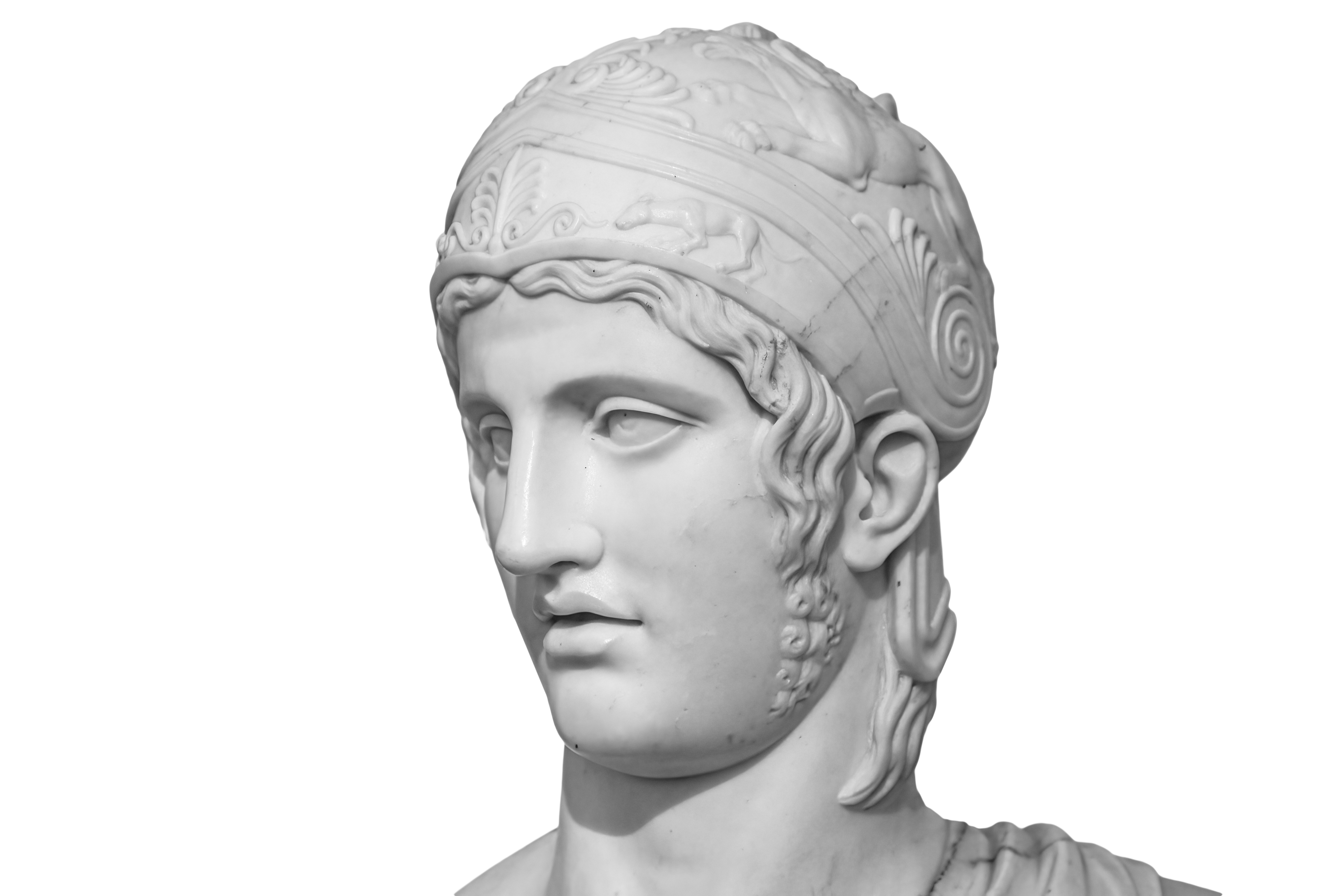
Ares, son of Zeus and Hera, is a Greek god who embodies the brutal and violent nature of war. Unlike Athena, who represents strategic warfare and wisdom, Ares's domain is the raw, chaotic aspect of battle. Despite being a god, his popularity among the Greeks was not as extensive as other deities, possibly due to his turbulent nature.
Ares’ Symbols and Their Significance
Ares' symbols include the spear, helmet, dog, and vulture. Each symbol reflects different facets of warfare and Ares's character:
- Spear and Helmet: Signify Ares's role as a warrior deity, representing his prowess in battle and readiness for warfare.
- Dog: Symbolises the loyalty and aggressiveness of a warrior; dogs are also scavengers on the battlefield, representing the aftermath of conflict.
- Vulture: Another scavenger of the battlefield, the vulture highlights the death and destruction that follows war, underlining the darker aspects of Ares's domain.
- Chariot: Often depicted riding a chariot into battle, this symbolises his swift and aggressive approach to warfare, highlighting mobility and the rush into conflict.
- Shield: Represents defence and protection in battle, although, for Ares, it also signifies the inevitability of conflict and the need to be prepared for war.
- Boar: The boar is another animal associated with Ares, symbolising ferocity, bravery, and the untamed nature of warfare.
- Sword: A common symbol of war and battle, the sword complements the spear, emphasising Ares's role as a god of all aspects of combat.
- Flaming Torch: Sometimes associated with Ares to symbolise the burning chaos of war and the destruction it brings to both sides of a conflict.
Ares’ Myths and Stories
Ares's involvement in mythological tales is varied. He often engages in battles that reflect his fierce and confrontational nature. Despite his strength and prowess, Ares does not always emerge victorious.
Ares and the Giant Alkyoneus
One of the notable myths involving Ares is his battle with the giant Alkyoneus, a formidable foe who was said to be invincible as long as he remained in his homeland. In this tale, Ares, embodying the spirit of war, confronts Alkyoneus in a fierce battle. Despite Ares's strength and combat skills, the giant proves to be a challenging opponent due to his invincibility on his home ground. This myth highlights Ares's determination and his role in the natural order of conflict and struggle.
Ares and the Aloadae
The Aloadae, twin giants Otus and Ephialtes, attempted to storm Mount Olympus and challenge the gods. Ares engaged them in battle to protect the world of the gods. However, the twins managed to capture Ares and held him captive in a bronze jar for thirteen months. His eventual rescue by Hermes showcases the limits of Ares's power and the solidarity among the Olympians in facing formidable threats.
The Trojan War
Ares plays a significant role in the Trojan War, aligning himself with the Trojans out of love for Aphrodite, who favoured Troy. His participation in the conflict is marked by fierce battles with other gods, including a memorable duel with Athena, who wounds him. This myth emphasises Ares's loyalty and passion, displaying his commitment to the causes and deities he favours, even when it leads to personal harm.
Ares and Hercules
Another fascinating myth involves Ares's interactions with Hercules, one of the greatest heroes in Greek mythology. In one of Hercules's tasks, he battles Ares's son, Cycnus, who is terrorising the region of Thessaly. Ares confronts Hercules to avenge his son's defeat but is ultimately bested by the hero. This story underscores the theme of human cunning and strength triumphing over divine might, as well as highlighting Ares's paternal side and his propensity for vengeance.
Ares and His Lovers
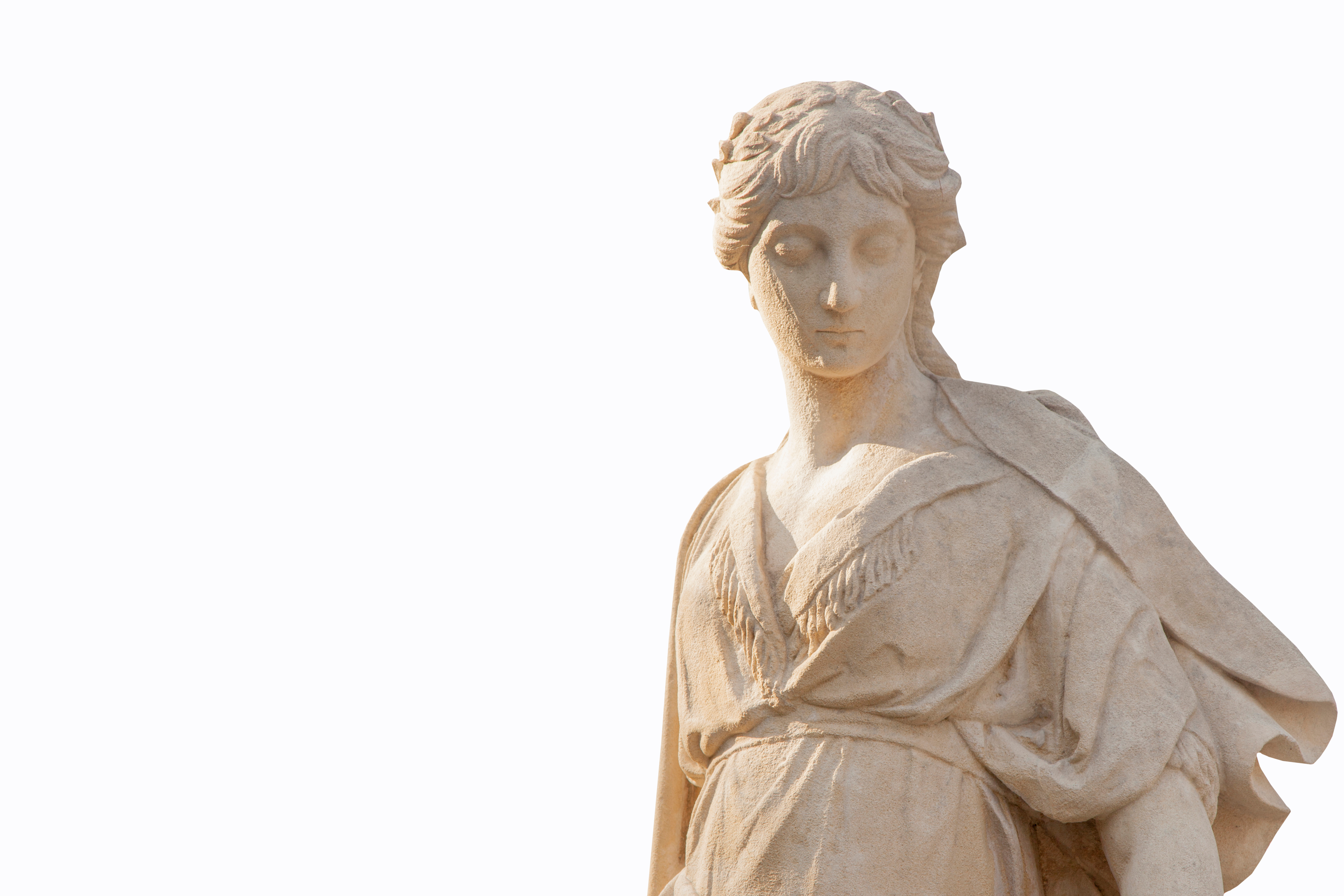
Ares's romantic entanglements are as fiery and intense as the battles he represents. His relationships are marked by passion, jealousy, and the intertwining of love and conflict.
- Aphrodite: Perhaps the most well-known of Ares's lovers, Aphrodite, the goddess of love, had a long-standing affair with him. This relationship was complex, as it was conducted secretly due to Aphrodite's marriage to Hephaestus, the god of craftsmanship. The union between Ares and Aphrodite symbolises the ancient belief in the close relationship between love and war, showcasing how passion can lead to conflict and vice versa.
- Eos: Ares also had a brief affair with Eos, the goddess of the dawn. This relationship further emphasises Ares's magnetic appeal and connections with other divine figures associated with powerful natural forces.
- Otrera: A lesser-known lover of Ares, Otrera, was the queen of the Amazons. This union is particularly interesting as it blends the themes of warfare and female empowerment, highlighting Ares's influence across different cultures and societies within Greek mythology.
- Persephone: In some tales, Ares is said to have had an affair with Persephone, the queen of the underworld. This liaison is particularly noteworthy because it ties Ares to the themes of death and rebirth, paralleling the cycle of destruction and regeneration that often accompanies war. The affair also highlights the interconnectedness of the Greek pantheon, where love and conflict cross paths.
- Enyo: Often considered a counterpart to Ares in her embodiment of war and destruction, Enyo shares many of Ares's martial attributes. Their partnership in various battles symbolises the close relationship between male and female energies in the chaos of war, illustrating how destruction and conflict are not the purview of a single gender.
- Aphrodite's Maidens: Beyond his affairs with goddesses, Ares's allure also extended to mortal women and nymphs, including those who served Aphrodite. These reveal the magnetic and seductive qualities attributed to Ares, further complicating his character as one capable of inspiring both love and fear.
- Aerope: In certain myths, Aerope, a mortal princess, is another figure associated with Ares. Her involvement with the god of war highlights the mortal fascination and dread of the divine, illustrating how Ares's influence extended beyond the heavens to touch the lives of those on Earth.
Ares’ Children and Family Tree
Ares fathered several children, many of whom inherited aspects of his prowess in battle and his fiery temperament.
- Phobos and Deimos: Perhaps the most directly related to their father's domain, Phobos (fear) and Deimos (terror) are the personifications of the emotions soldiers feel in battle. They often accompanied their father into warfare, spreading fear and terror among the enemy ranks.
- Harmonia: In a twist of irony, Ares and Aphrodite's union also produced Harmonia, the goddess of harmony and concord. Her existence represents the potential for peace and reconciliation following the strife and discord of war.
- The Amazons: Through his relationship with Otrera, Ares is said to be the father of the Amazons, a tribe of warrior women. This connection further cements Ares's legacy as a deity influencing warriors and battles across the mythological spectrum.
- Eros: While traditionally associated with Aphrodite, some myths also include Eros, the god of love, among the children of Ares. This inclusion underscores the intricate relationship between love and war, highlighting the capacity of conflict to both separate and unite.
- Anteros: Another figure linked to Ares in certain traditions is Anteros, the god of requited love and the avenger of unrequited love. His connection to Ares further illustrates the complex interplay between love's various forms and the battlefield's harsh realities.
- Enyalius: In some accounts, Enyalius is seen as a son of Ares and represents a more direct aspect of war. Often indistinguishable in function from Ares himself, Enyalius underscores the sheer breadth of Ares's influence over the concept of battle and courage.
- Penthesilea: A celebrated Amazonian queen, Penthesilea is sometimes counted among Ares's descendants. Her legendary prowess in battle and tragic fate in the Trojan War exemplify the valour and tragedy associated with Ares's lineage.
- Cycnus: Ares fathered Cycnus, a fearsome warrior who challenged Hercules. Cycnus's desire for combat and disregard for life mirrors Ares's more destructive aspects, highlighting the dark allure of battle.
- Thrassa: A less well-known daughter, Thrassa, is credited with giving Ares grandchildren who would also embody aspects of his martial prowess, weaving Ares's legacy further into the fabric of Greek mythological tradition.
- Lycurgus: Associated with the region of Thrace, Lycurgus is another figure often cited as a son of Ares. Known for his opposition to the intoxicating influence of Dionysus, Lycurgus's story reflects themes of conflict between the civilising aspects of culture and the primal, untamed nature of humanity, a duality that Ares embodies.
Ares' Statues and Legacy
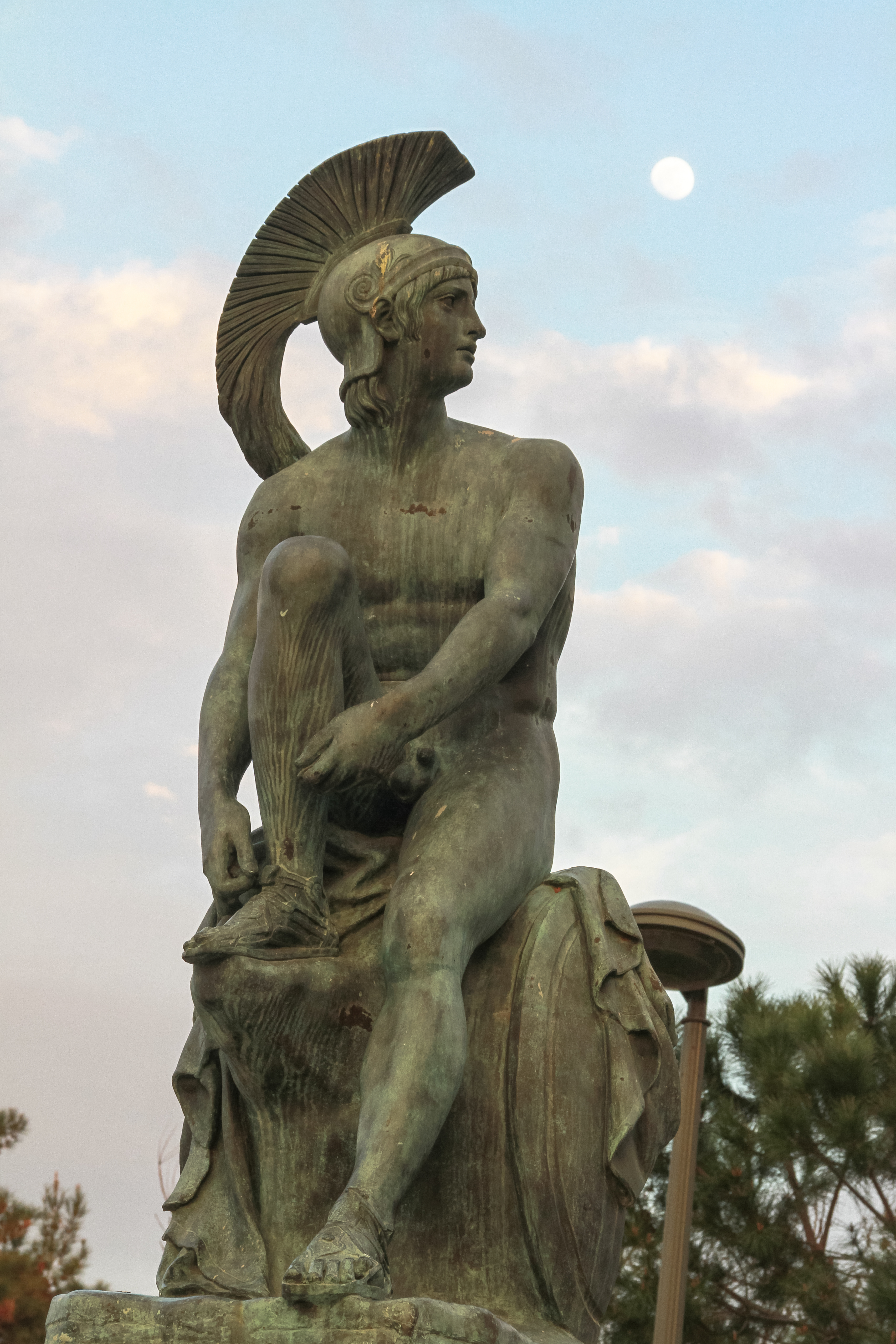
Ares has left a lasting imprint on the art and culture of ancient and modern societies. His legacy remains in numerous statues and artworks, through which the depth and complexity of his character continue to captivate and provoke thought among observers. These representations often depict Ares as a formidable warrior, armed and ready for battle. Yet, they also hint at the nuanced layers of his persona — a god who is at once a destroyer and a protector, a figure of dread and admiration.
The statues of Ares, found in temples and museums worldwide, serve as a testament to his significance within the Greek pantheon. They portray him in various poses, from the poised aggressor to the contemplative warrior, reflecting the multifaceted aspects of warfare he governs. Through these artistic renditions, Ares is shown as a symbol of bravery, courage, and the inevitable consequences of conflict.
Ares' legacy extends into literature, poetry, and modern media, illustrating the timeless relevance of his domain. His stories are woven into the fabric of human history, echoing the eternal cycles of war and peace, hatred and love. In these narratives, Ares is a cautionary figure, reminding humanity of the horrors of unbridled aggression, and a celebrated hero, exemplifying the bravery and sacrifices inherent in the struggle for justice and honour.
Frequently Asked Questions About Ares in Mythology
What Does Ares Look Like?
Descriptions of Ares from ancient texts and art depict him as a handsome but fierce and stern warrior, often wearing full battle armour. This appearance mirrors his martial nature and his role as a god of war.
Was Ares an evil god?
Labelling Ares as 'evil' simplifies a complex character. Ares embodies the necessary, albeit dark, aspects of human existence. War, while destructive, was a reality of ancient life, and Ares represented this inevitable aspect of human society.
Why Did Ares and Athena Clash?
Ares and Athena, both gods of war, had significantly different approaches to warfare. Athena's strategic and intellectual approach often clashed with Ares's brute force and chaos, leading to their rivalry.
Was Ares More Evil Than Hades?
Hades is the god of the underworld, and while often associated with death, was not considered 'evil.' Ares's association with the destructive side of war makes him a more controversial figure, though not necessarily more 'evil' than Hades.
What Role Did Ares Play in the Lives of Mortals?
While primarily a god of war, Ares also played a significant role in the lives of mortals. He was summoned by warriors seeking courage and strength in battle and feared for his ability to incite violence and discord among cities and families. His influence was a double-edged sword, offering both protection in warfare and the peril of uncontrolled aggression.
How Did Ares Interact with Other Deities?
Ares had complex relationships with his fellow Olympians. While he shared a close bond with Aphrodite, his relationship with other gods, like his sister Athena and his father Zeus, was often strained due to his aggressive and tumultuous nature. These dynamics reflect the ancient Greeks' understanding of the gods as beings with distinct personalities and interpersonal conflicts.
What Are Some Lesser-Known Myths Involving Ares?
Beyond his well-documented battles and romances, Ares features in lesser-known myths that highlight different aspects of his character. For instance, his participation in the trial of Poseidon's son, Halirrhothios, for the murder of Ares's daughter, Alcippe, showcases his role as a protective father and an enforcer of justice.
How Was Ares Worshiped in Ancient Greece?
Ares's worship varied significantly across the Greek world. In Sparta, he was a model warrior and received sacrifices from soldiers hoping to earn his favour before battles. However, in other city-states, his cult was less prominent, reflecting the ambivalent feelings Greeks held towards the god of war.
Did Ares Have Any Sacred Animals or Plants?
In addition to the animals associated with him symbolically, such as dogs and vultures, the woodpecker was considered sacred to Ares. This bird was believed to embody martial vigour and resilience. While not as commonly recognised as his other symbols, the woodpecker serves as a reminder of Ares's connection to nature and the animal kingdom.
How Do Modern Interpretations of Ares Differ from Ancient Ones?
Modern interpretations of Ares often emphasise his brutality and the destructive aspects of war, sometimes overshadowing the more complex nuances of his character recognised in ancient mythology. Today, Ares is seen as a figure representing the courage and sacrifices inherent in combat, reflecting shifting attitudes towards conflict and heroism.
What Lessons Can We Learn from Ares and His Myths?
Ares's myths teach us about the duality of human nature, the costs of war, and the importance of balancing aggression with wisdom. His stories encourage a reflection on our values, urging us to consider the impact of our actions on both ourselves and others. Ares challenges us to confront our fears and to understand the true nature of courage and strength.
Recommended for you!
Best SellersExplore Greek Mythology with Centre of Excellence
Dive into the vast expanse of Greek mythology with our Greek Mythology Diploma Course, crafted to bring ancient stories to life.
Why Centre of Excellence?
- Accessibility: We believe in making education accessible to everyone. That's why our courses are affordable, ensuring that everyone has the opportunity to learn.
- Learn at Your Pace: Our courses are designed with your lifestyle in mind. Enjoy the flexibility of learning at your own pace, easily fitting your studies around your existing commitments.
- Diverse Curriculum: Our Greek Mythology course covers a broad spectrum of myths, gods, and legends, offering insights into the narratives that have influenced cultures worldwide. It's perfect for those looking to deepen their understanding or explore mythology for the first time.
- Supportive Learning Environment: Enrolment comes with personalised tutor support and access to a community of like-minded learners. You're never alone on your educational journey, with guidance and encouragement available every step.
Special Offer
We're excited to offer our Greek Mythology Diploma Course at the special rate of £29 for a limited time, saving you over £100!


